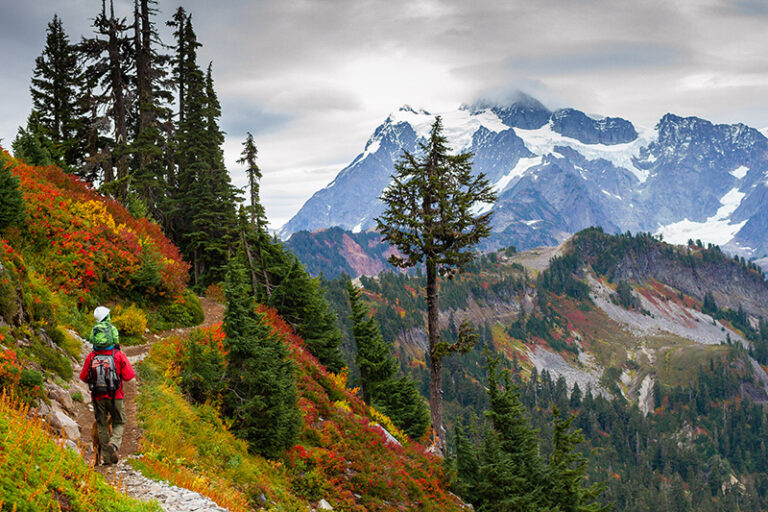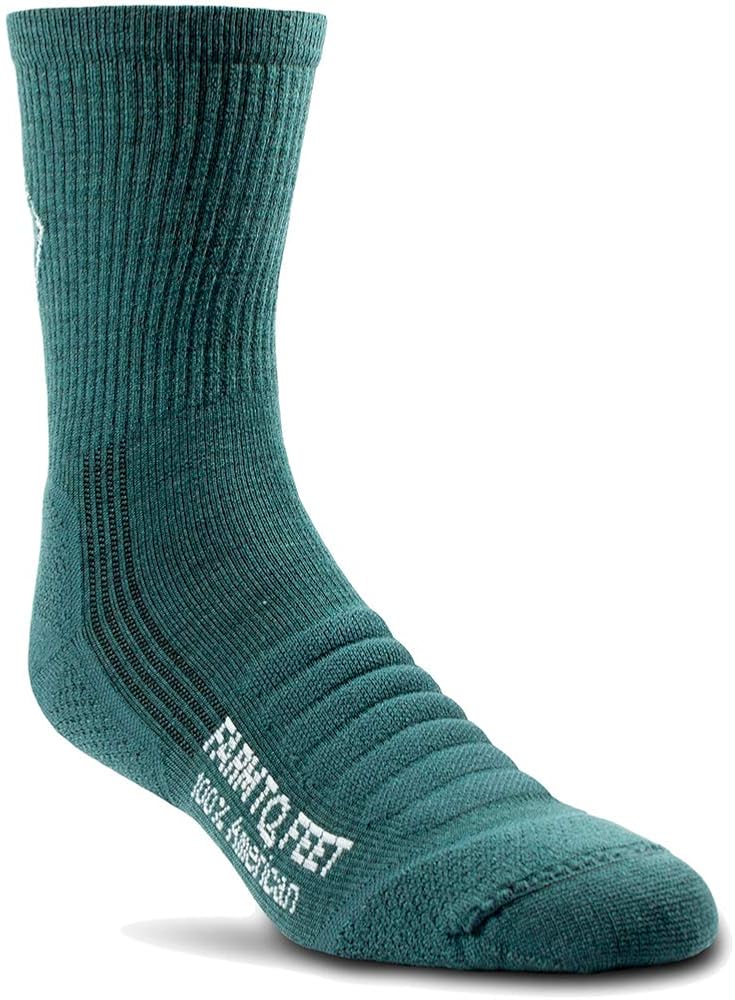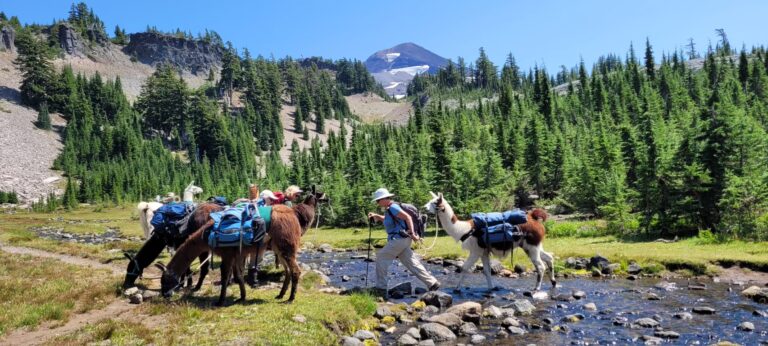Thinking about upgrading your camping game? The process of trying to figure out which RV is right for you is exciting, but it can also be a little overwhelming. I found that out a few years back when we upgraded from a 1983 GMC camper van to a new Ford Transit camper build by Vandoit. Back then, I wish I would have had somebody like Noah Botnick to ask my many RV related questions. Noah, who, as part of his job, gets to take different RVs from R’nR RV Center out on his adventures, hooked us up with some great tips for anyone looking at getting or upgrading an RV.
Born in Coeur d’Alene and raised in Spokane, Noah has always been active in the outdoors year-round, from snowboarding and mountain biking to hiking, rock climbing, and dirt biking. “Being outside is like my therapy; It makes me feel grounded,” he says. When asked how he became an RV guru of sorts, he explained that he tent camped for years, but found as he got older that he didn’t enjoy it as much. “It just wasn’t as fun or comfortable anymore and I eventually got into pop up tents a couple years ago.” Eventually, the extreme summer heat convinced him to get an RV with AC and water. “It’s not just the RVs but the whole outdoor experience I love,” he says.
There are more options than ever for a home on wheels for your adventures, from trendy camper vans, deluxe class A motorhomes, affordable travel trailers, utilitarian truck campers, light and simple tent trailers, compact class B motorhomes, and even toy haulers with living space inside. Then there are endless decisions about what amenities you want, from basic comforts and conveniences like a bed, fridge, and heat to camp luxuries like a TV, microwave, and full bathroom with hot water and a shower.
If you’re in the market for a new or different RV, we hope these tips help make the process easier and more fun!
How do you figure out which type of RV is right for you?
Noah: I think the biggest place to start is to identify what type of RV you think you need based on where you plan to go. Will you spend most of your time plugged in at RV parks or more off-grid at remote campgrounds or boondocking on the side of a mountain? Are you going to use it in the winter or just the warmer seasons? Are you going to live in it full time or for months out of the year or just occasional camping trips? Finally, how much do you want to spend? An RV that’s built better and of higher quality will cost more but will last longer.
Should I buy online or shop around in person?
Noah: Definitely shop around and look online but also be sure to look at the options in person at an RV lot to gather information. Walk around different RVs yourself and ask lots of questions.
Do I need built-in water and plumbing, or can I get by with water jugs and an outdoor shower and toilet?
Noah: There are many benefits to having a built-in water system—one or more sinks, options for a real shower, and even a flushing toilet. The drawbacks are you have to maintain it and winterize the system to avoid frozen pipes and then get it ready for summer again in the spring. An RV without a built-in water system is way easier to maintain. When I if first got into RVing, I specifically wanted an RV without water. But, after a while, I realized it was taking me several hours to set up my external shower and toilet and then a few more hours to break down camp on each trip. Having water on board is a better option if you want to save time. You can always dry camp if you get an RV with water and want to use it in the winter without freezing the plumbing too. An RV without water, on the other hand, is less expensive and easier to maintain with less things that could break.
Which power and electrical options are best?
Noah: You definitely need an electricity source to make full use of an RV. Things have come a long ways from the old days of needing a generator or shore power hook up. Lithium batteries and solar allow you to go off-grid without a generator or the need to plug in. Some lithium battery set ups even allow you to run appliances like an AC unit, microwave, and fridge. Many simple RV set ups get by fine too with less expensive AGM batteries and solar that can run some small, energy-efficient appliances. Generators have also greatly improved and are quieter and more efficient.
What are the pros and cons of having a toilet and shower in my RV?
Noah: With smaller RVs, there are a lot of combinations of toilet/shower options, from outdoor showers and toilets with tanks or dry flush options that you can set up in tents at off-grid camps, to a wet bath toilet/shower/sink combo all in the same small room in your RV. When I first saw a wet bath, I thought it was kind of weird, but, after using mine for a while now, I found it very convenient, and it’s a great way of saving space. Then there are some higher-end RVs that have porcelain toilets and full bathrooms.
Do I need a full kitchen in the RV, or should I cook and eat outside?
Noah: If you’re going to do a lot of cooking, I recommend looking for an RV with a built-in outdoor kitchen and a stove, sink, and refrigerator inside or outside. At least a cook top or BBQ outside is a great option. Smaller RVs and camper vans can also get away with setting up a simple kitchen outside, although set up and packing it all away takes time. Some higher-end RVs have microwaves and ovens or even air fryers built inside, along with a full indoor kitchen. Refrigerators and electric coolers can work off different fuel sources, including generator, solar, or shore power. Other kitchen appliances and grills can run off a mix of fuel sources from the RV’s power system or propane.
Do I need a heater?
Noah: Heaters are great for winter and shoulder season camping and travel, especially if you’ll be visiting higher elevations or different climate zones where the temps could drop considerably. Most RVs have dual-fuel options for heat so you can run your heater off electricity (shore power or a generator) or a propane tank. Other heaters can run off of your RV’s regular fuel or diesel tank.
If you have more questions for Noah Botnick, follow him and ask questions on Instagram, Tik-Tok, or YouTube (Noah’s Ark RV Adventures). He’s also the guy behind all of the RV adventures for R’nR RV on Instagram, Facebook, and Tik-Tok. //













